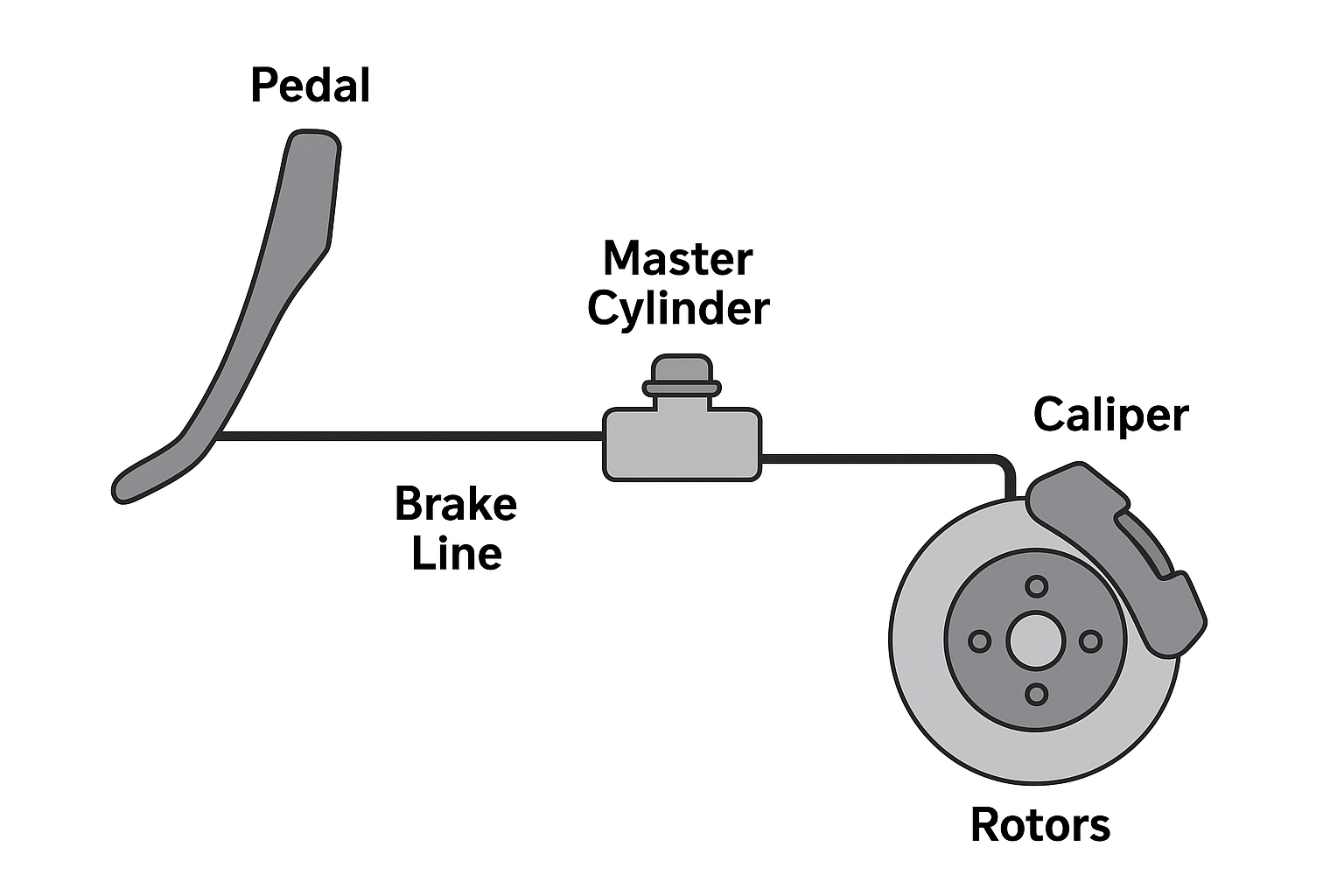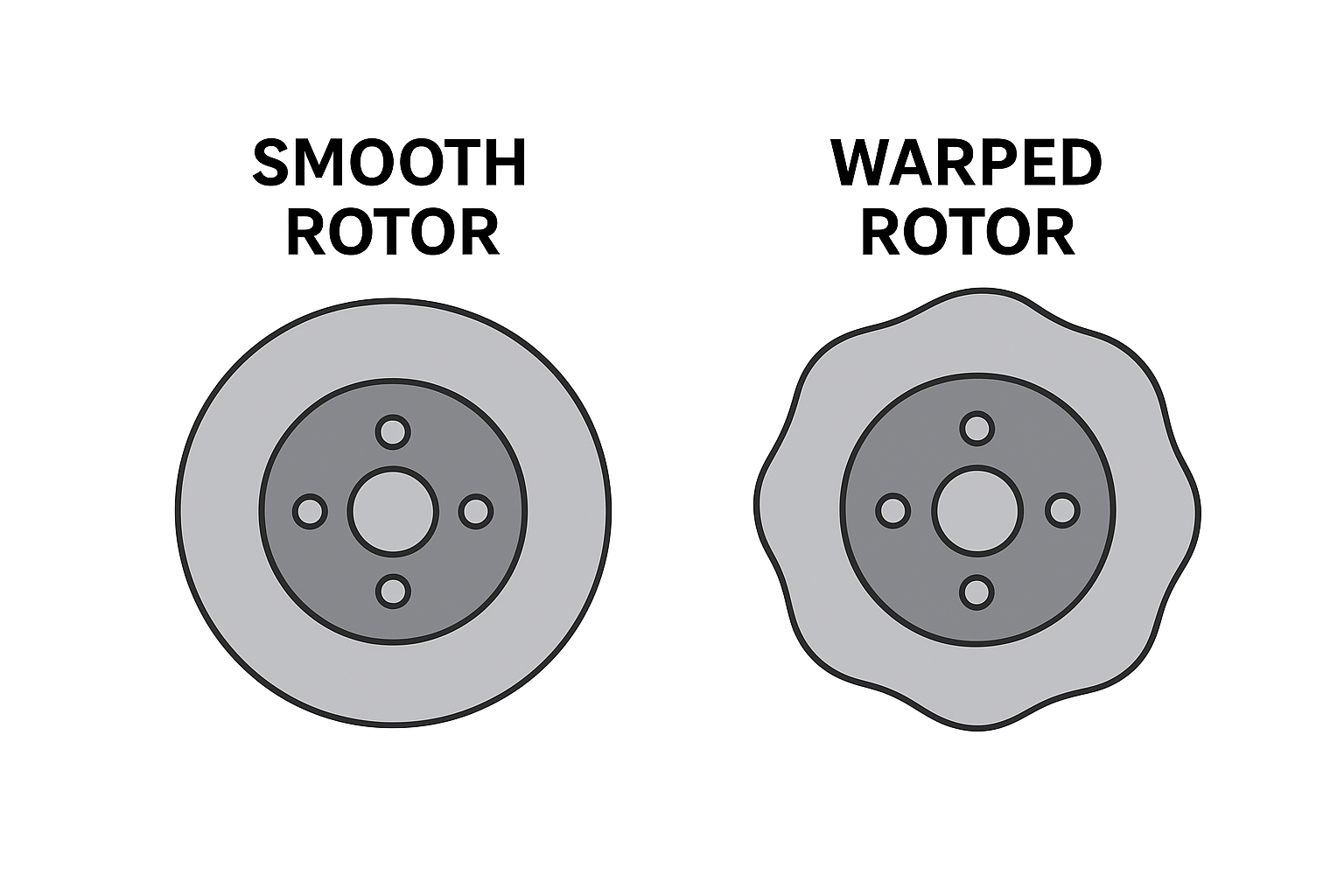You’re driving along smoothly when you hit the brakes — and suddenly, your car jerks or shudders to a stop. It’s a moment that can feel unsettling, even alarming. But don’t panic — this issue is fairly common and usually points to a fixable problem in your braking or suspension system. Understanding why your car jerks when braking can help you address the issue early, avoid costly repairs, and, most importantly, keep your vehicle safe on the road.
Contents
1. The Basics: What’s Happening When You Brake
When you press your brake pedal, your car’s braking system converts motion (kinetic energy) into heat energy through friction. This friction is created by brake pads pressing against rotors or drums. If any part of that system isn’t working evenly — say, one wheel grabs harder than the others — the result is a jerking or pulsing sensation.
Analogy: Think of your brakes like shoes gripping the ground. If one sole is smooth and the other has good tread, your steps will feel uneven and awkward — the same way your car feels when braking isn’t balanced.

2. Common Causes of Jerking When Braking
A. Warped Brake Rotors
Over time, heat and wear can cause your brake rotors to warp slightly. When that happens, your brake pads can’t grip the surface evenly, creating a pulsing or jerking motion during braking — especially noticeable at higher speeds.

Fix: Have a mechanic resurface or replace the rotors.
B. Worn or Glazed Brake Pads
Brake pads wear down with every stop. If they become uneven, too thin, or overheated (“glazed”), they can cause inconsistent friction, resulting in a jerky stop.
Fix: Replace the brake pads, and inspect the rotors for scoring or uneven wear.
C. Dirty or Faulty ABS (Anti-lock Braking System)
Your ABS helps prevent wheel lockup during sudden stops. But if the sensors are dirty or malfunctioning, your brakes may engage unevenly or “kick back,” causing a jerky feeling.
Fix: Clean or replace faulty ABS sensors, and ensure your ABS system is working correctly.
D. Suspension or Steering Issues
Sometimes, the problem isn’t in the brakes at all. Worn suspension components — like ball joints, control arms, or shocks — can make your car react unevenly when weight shifts during braking.
Fix: Have a qualified mechanic inspect your suspension and steering systems for play or wear.
E. Transmission or Engine Mount Problems
If your car jerks mostly at low speeds or when coming to a complete stop, it could be your transmission shifting awkwardly or engine mounts allowing too much movement.
Fix: Check transmission fluid levels and condition; replace worn engine or transmission mounts if needed.
3. Quick Diagnosis Checklist
✅ Does the steering wheel shake when braking? → Likely warped rotors.
✅ Do you feel a jerk only at slow stops? → Possible transmission or engine mount issue.
✅ Does the ABS light come on? → Check ABS sensors or wiring.
✅ Is there noise (squealing or grinding)? → Worn brake pads or rotors.
✅ Does it happen mainly on rough roads? → Suspension component wear.
4. Preventive Maintenance Tips
- Brake fluid check: Replace every 2–3 years to maintain even braking pressure.
- Brake inspection: Have pads and rotors checked at every oil change or 6 months.
- Gentle braking: Avoid slamming on the brakes whenever possible to reduce heat buildup.
- Clean wheels and sensors: Road dust and debris can affect brake and ABS performance.
- Listen and feel: Any new vibration, noise, or pull when braking deserves attention early.
5. When to See a Mechanic
If the jerking happens consistently — especially at moderate to high speeds — it’s time to book an inspection. Braking issues affect your safety and the wear of other car parts, so it’s best not to delay. Most of the time, a simple rotor resurfacing, brake pad replacement, or sensor cleaning solves the issue quickly.
Summary & Conclusion
A jerky or shaky stop is your car’s way of saying something’s off in the braking or suspension system. Whether it’s uneven rotors, worn pads, or a simple sensor issue, addressing it early helps you stay safe and saves money in the long run.
Think of brake care like regular shoe maintenance — you wouldn’t walk confidently in uneven or worn shoes, and your car shouldn’t either. Keep your brakes balanced, and your ride will stay smooth, safe, and steady.
Stay proactive, stay safe, and give your car the attention it deserves — it’ll return the favor every time you hit the road.
